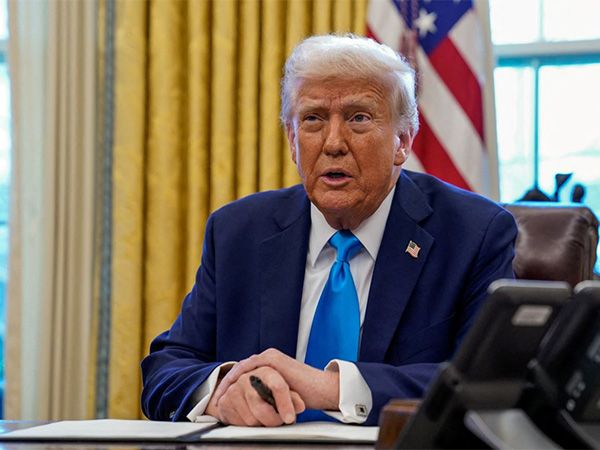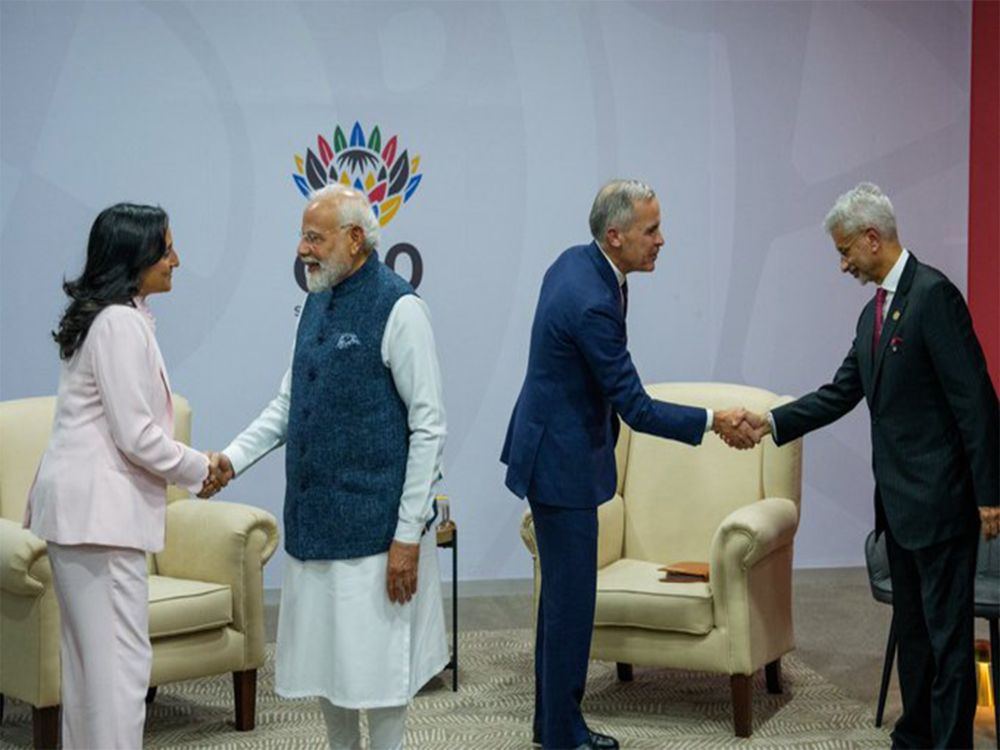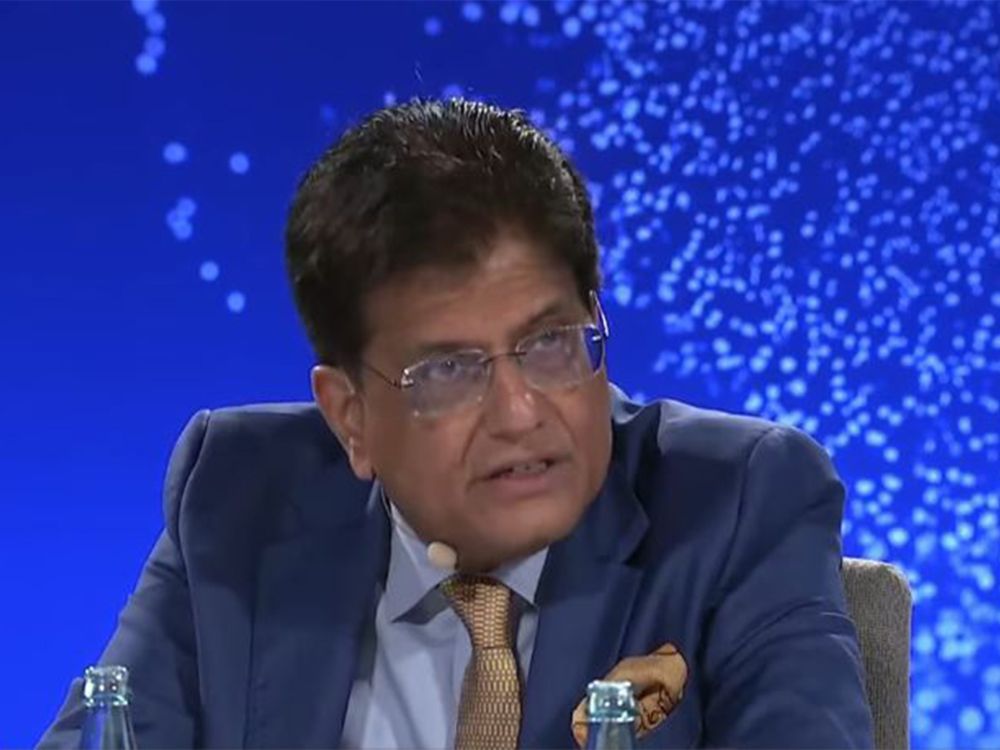Nobody in India is now beyond the reach of the federal investigating agency that looks into financial crimes and irregularities. Some Opposition leaders cry foul, but the probes against firms, persons and international organizations go on
Our Bureau
Mumbai/New Delhi
Congress leader Rahul Gandhi recently said that he views his interrogation by Enforcement Directorate (ED) in the National Herald case “like a medal”. Addressing a public rally in Kerala, Gandhi said he was not worried and accused the BJP-led government of using probe agencies against its political rivals. “After I left, I was wondering why they only interrogated me for five days, why not 10 days. I thought maybe I’m not opposing them strongly enough…it is quite clear that anybody who opposes the BJP faces ED. I view my five days of interrogation like a medal, and I am hoping that they do it again 3,4,5,6,10 times,” Gandhi said.
Rahul Gandhi was questioned by ED for five days about the ownership of Young Indian Private Limited (YIL) by the Gandhi family and its shareholding pattern in Associate Journals Limited (AJL), the company that runs the National Herald newspaper.
The Enforcement Directorate or ED has become a dreaded name in India. It is now synonymous with the government’s action against anyone seems to be violating the law, especially financial laws. From top politicians to foreign firms to human rights groups and businesses are in the crosshairs of this agency.
In a major move on Friday, the Enforcement Directorate (ED) issued a show-cause notice to Amnesty India International Pvt Ltd (AIIPL) and its CEO Aakar Patel for contravention of the provisions of the Foreign Exchange Management Act, 1999 (FEMA) and imposed a penalty of Rs 51.72 crore and Rs 10 crore respectively.
The adjudicating authority of ED issued the notice. The federal agency had initiated an investigation under FEMA on the basis of information that Amnesty International, UK had been remitting huge amounts of foreign contributions through its Indian entities (non-FCRA companies) following the FDI route, in order to evade the Foreign Contribution Regulation Act (FCRA) to expand its NGO activities in India, despite of denial of prior registration or permissions to Amnesty International India Foundation Trust (AIIFT) and other trusts under FCRA by Ministry of Home Affairs.
“The show cause notice issued by ED had charged that during the period between November 2013 and June 2018, remittance which was received by AIIPL and claimed as a receipt for Business and Management Consultancy and Public Relation Services for export of services to the foreign beneficiary is nothing but the amount borrowed from overseas remitter, thereby violating the FEMA provisions,” an ED statement mentioned.
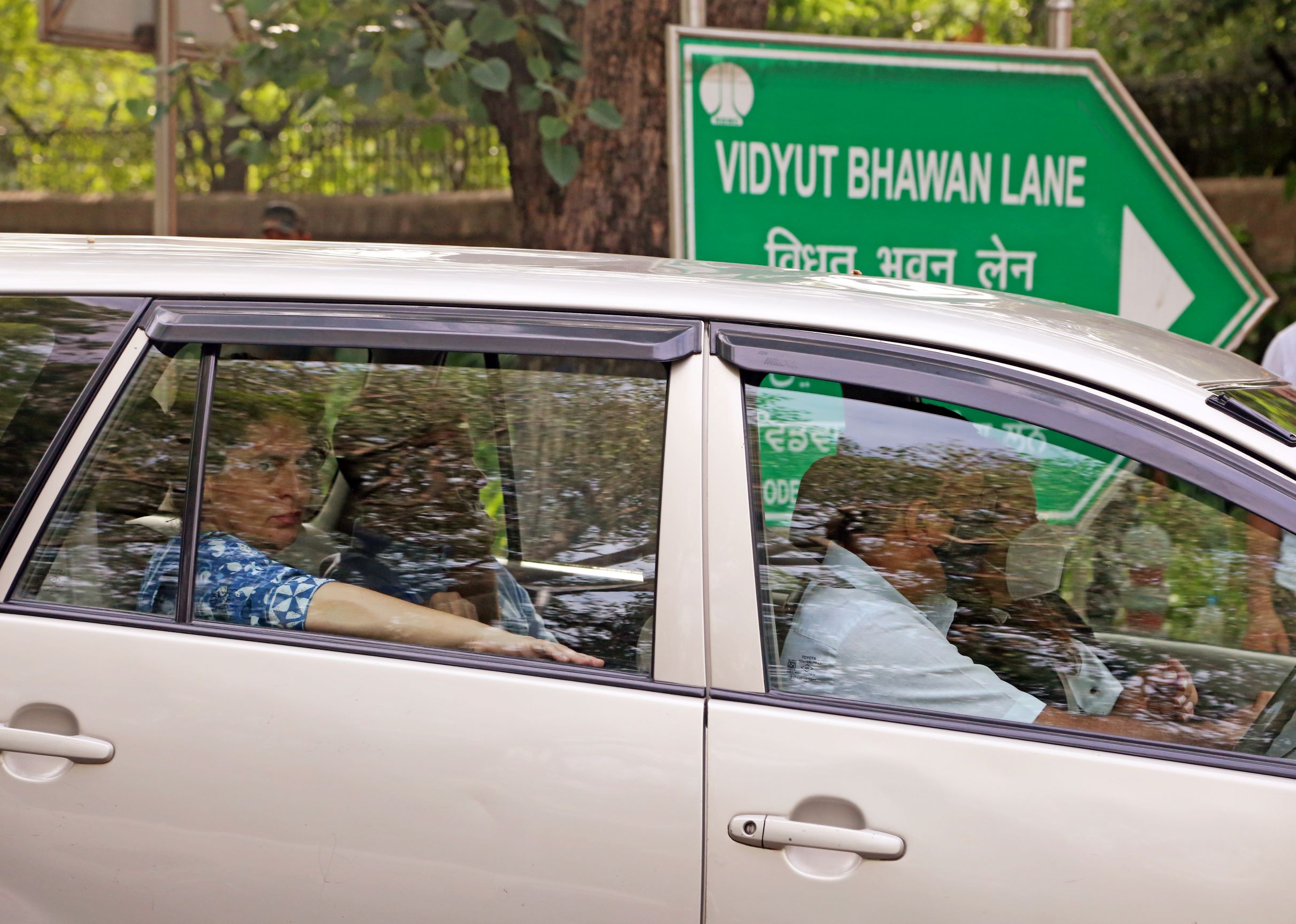
After getting a detailed reply from AIIPL and following the principle of natural justice, the Adjudicating Authority of ED has held that AIIPL is an umbrella entity under Amnesty International Ltd, UK, which was declared to be set up for the cause of social activities in India.
Meanwhile, in a continuing probe, the Enforcement Directorate (ED) on Friday issued summons to Delhi Minister Satyendar Jain’s wife Poonam Jain next week in connection with an alleged money laundering case. Poonam has been asked to be deposed before the ED investigators at its headquarters on July 14, an ED official said. The move came almost two months after the ED arrested Satyendar Jain on May 30.
The federal agency on July 1 arrested two associates Satyendar Jain–Ankush Jain and Vaibhav Jain– following questioning with them. In the case, the ED on June 6 had seized 2.85 crore cash and 133 gold coins weighing 1.80 kg from Satyendra Jain’s aides during its day-long raid conducted at various places across Delhi and the National Capital Region. The agency had also seized various incriminating documents and digital records during these raids.
The ED then said that the total movable assets were seized from an “unexplained source” and were “found to be secreted” in the raided premises.
The ED initiated the money-laundering investigation on the basis of the First Information Report registered by the Central Bureau of Investigation (CBI) on 24 August 2017, under Section 13(2) r/w 13(1)(e) of the Prevention of Corruption Act, 1988 against Satyendar Jain, Poonam Jain, Ajit Prasad Jain, Sunil Kumar Jain, Vaibhav Jain and Ankush Jain.
In another move, Vivo India on Friday approached the Delhi High Court to challenge the freezing of the company’s bank account by the Enforcement Directorate (ED) in connection with a money laundering case. Vivo India, in the plea, submitted that grave injustice will be caused to the company due to this act of the Respondent (ED) and will negatively impact its reputation and business operations.
The freezing of the Bank Accounts will not only impede the existing/prospective business operations of the Petitioner conducted through the Bank Accounts but will bear an adverse effect on the Petitioner’s operations in India and across the globe, the plea said.
“If amounts in the Petitioner’s Bank Accounts remain frozen, it would not be able to pay its statutory dues to the competent authorities under various enactments, leading to the Petitioner, being in further violation of law. The freezing also prevents the payment of salaries to the thousands of employees of the Petitioner.”
On Tuesday, Enforcement Directorate conducted searches at more than 40 locations including Uttar Pradesh, Madhya Pradesh and some southern states in connection in connection with a money laundering case registered against Chinese smartphone manufacturer Vivo.
According to the ED, Vivo India’s nearly 23 associated firms such as Grand Prospect International Communication Pvt Ltd (GPICPL) transferred huge amounts to the firm and out of the total sale proceeds of Rs 1,25,185 crores, it remitted Rs 62,476 crores almost 50 per cent of the turnover out of India, mainly to China.
Meanwhile, the Ministry of External Affairs (MEA) on Thursday stressed that companies who operate in India should follow the law of the land regarding the ongoing investigation related to Vivo Mobile Communications and some other Chinese firms.
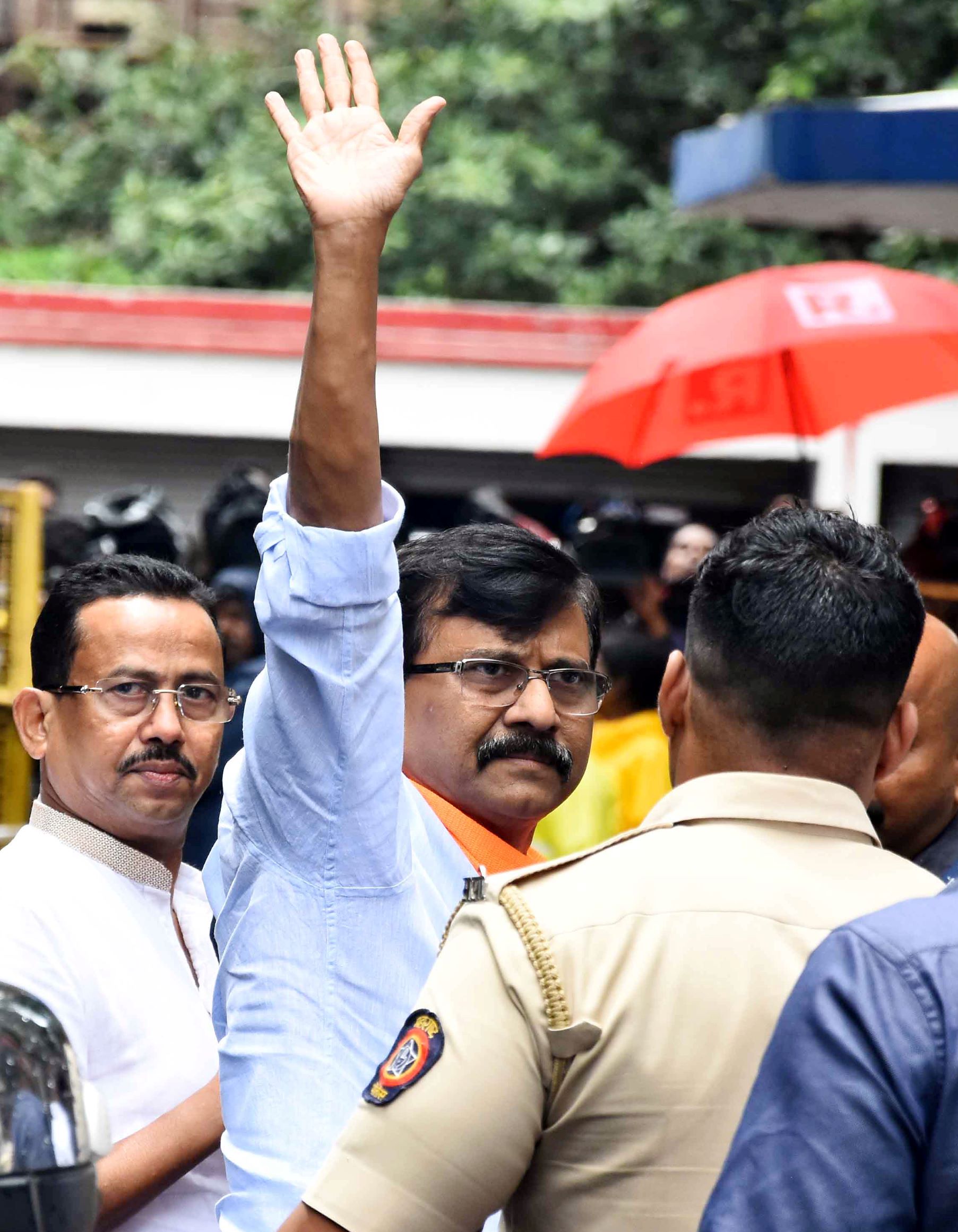
Shiv Sena leader Sanjay Raut at the ED office in Mumbai (ANI)
In a weekly media briefing on Thursday by the Ministry of External Affairs (MEA), official spokesperson, Arindam Bagchi said, “Companies who operate here need to follow the law of the land. Our legal authorities are taking steps as per law of the land. I don’t see the case to make comments as such on it.”
Meanwhile, the Enforcement Directorate (ED) on Tuesday questioned former Mumbai Police Commissioner Sanjay Pandey for nearly eight hours in National Stock Exchange (NSE) co-location scam case.
Pandey, who retired as Mumbai Police Commissioner last week, reached the ED headquarters around 11.20 am here at ED headquarters and left around 6.40 pm. Pandey reached ED headquarters in an auto-rickshaw, dodging media persons waiting for his appearance since morning, and left in a private taxi.
Dressed in a sky-blue shirt and black pants, Pandey was deposed before the investigators following ED summons against him.
Pandey was questioned for almost two-and-a-half hours and allowed a lunch break around 2 pm. The second part of the questioning started after the lunch break.
Meanwhile, the federal probe agency recorded Pandey’s statement under Section 50 under provisions of the Money Laundering Act (PMLA) in the NSE co-location scam to know how an audit company incorporated in 2001 by the retired Mumbai Police chief, who did not raise the red flag that the NSE servers were compromised.
It is alleged that the firm incorporated by Pandey was one of the IT companies tasked with conducting security audits at NSE during 2010 to 2015 when the co-location scam is believed to have taken place.
In another high-profile case, the Enforcement Directorate (ED) has summoned Samajwadi Party leader Azam Khan, his wife and their son on different dates before July 15 in connection with a case linked to the construction of Mohammad Ali Jauhar University.
Khan, his wife Tazeen Fatima, and their son Abdullah Azam have been asked to appear at its zonal office in Uttar Pradesh’s Lucknow. The case is linked to a massive fund transfer for the construction of UP’s Rampur-based Jauhar University. The ED registered the case in 2019.
In the ED’s money laundering case against Khan, a team from the agency’s Lucknow branch had also conducted verification of the land acquired by Mohammad Ali Jauhar University in Rampur in May.
Khan was booked under the Prevention of Money Laundering Act in August 2019 based on 26 cases of land grabbing registered by people in Rampur against him.
Just hours after the Enforcement Directorate (ED) summoned Samajwadi Party leader Azam Khan, his wife and their son on different dates before July 15, the SP leader was taken to Rampur for a court appearance where he took a jibe at the Bharatiya Janata Party (BJP) stating all cases will be lodged against the Opposition under BJP’s rule.
“All the cases will continue to be on us, some other government people will also be sued, all the cases will be on the opposition parties under BJP,” said Khan. He also stressed that he was en route to the ED’s office as the agency had called him and said, “The ED has called me, now that they have asked me, I will go.”
Meanwhile, in another jolt to the Uddhav Thackeray-led Shiv Sena faction, a former Member of Parliament quit the party on Thursday. Anandrao Vithoba Adsul, former Lok Sabha MP from Maharashtra’s Amravati resigned as a leader of the Shiv Sena. Shiv Sena MP Sanjay Raut said, “Anand Rao has given his resignation, I have learnt that ED was going on against him, there was a raid at his residence… due to this pressure may be…such pressure is on many leaders.”
Whether the BJP government is using ED to harass and pressure opposition leaders or not, the agency has become too powerful and nobody is beyond its reach.


















